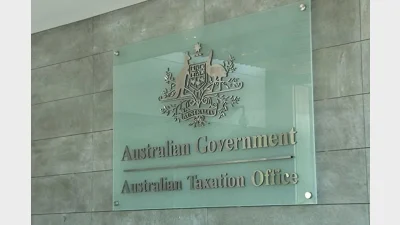(December-2002) Corporate super funds: are they an endangered species?
Corporate funds may be tired of reading their own obituaries, but by all accounts, they are becoming an endangered species. The latest statistics from the Australian Prudential Regulation Authority (APRA) shows that by the end of June 2002, there were 2633 corporate funds in Australia — just over 600 less than there were a year before and well down on the 4211 that existed in June 1995.
The endless flow of corporate funds into master trusts has been well documented on these pages, and has been reconfirmed when compiling Super Review’s Top 200 Corporate Super Fund Survey this year. There was no let up of funds dropping off our list or flagging their plans to outsource.
Again, we have found corporate fund numbers are also dwindling because of fund mergers. Indeed, many corporations, which previously administered two, or even three superannuation plans, have since merged these plans into one.
Their aim is to bolster their funds’ economies of scales and lower costs. As one larger fund they have more clout when negotiating deals with service providers and it’s also easier to introduce or expand member investment choice.
Chairman of the Nabalco Superannuation Plan Bill Aitken says the decision to merge the fund with the Nabalco Employees Superannuation Fund can be attributed to what his organisation refers to as ‘continuous improvement’.
“Mainly it helps us gain efficiencies and gives us more time and ability to actually run the fund… I think there’s more synergy because you used to have to go through everything twice and the good thing is you now get good discussion in meetings that you didn’t get from the funds by themselves… This way there is a good representation from both of the previous funds in debate,” Aitken says.
The Nabalco Employees Superannuation Fund has 815 members and $87.3 million in assets.
Construction firm, the Transfield Group, has also merged its two defined benefit plans (the Transfield Executive Superannuation Fund and the Transfield Superannuation Fund) into its accumulation plan (the Transfield Retirement Fund).
Superannuation manager Paul Lau says: “The major reasons were to make it simpler and easier for members to understand by moving to a simple accumulation fund, and the fact we introduced member investment choice as of November 1. We felt it would be impossible to implement this within a defined benefit framework, so we opted to move to an all-accumulation fund”.
The enlarged Transfield Retirement Fund now has 3500 members and $80 million in assets.
Superannuation manager for the Unilever Group, Andrew Bell, says the decision to merge the Unilever Super Fund with the Unilever Australia Retirement Benefit Fund (UARBF) was more an issue of cost and the desire to achieve economies of scale.
“There were two drivers really. One was to achieve efficiencies by looking to combine the admin and save money in terms of legal costs, actuarial costs, and particularly communication costs. The second reason was really to recognise that the Unilever Super Fund had previously been a defined benefit fund, but had since become defined contribution, and it just made sense to merge the funds — given the UARBF was also defined contribution,” Bell says.
Pacific Dunlop is another company which has merged its two funds (the Pacific Dunlop Superannuation Fund and the Pacific Dunlop Executive Superannuation Fund) for economic and cost reasons. Nonetheless, fund secretary John Eaton says the Pacific Dunlop Superannuation Fund took on the Pacific Dunlop Executive Superannuation Fund two years ago, taking total membership to 13,000 and assets to $500 million, but a restructuring of the Pacific Dunlop group — the unwinding and separate listing of the Ansell business — has seen fund membership plummet to 5300 and assets to $298 million.
“The main reason was to increase efficiencies and allow savings by reducing costs,” Eaton says.
This year the $140 million QBE Group Staff Superannuation Plan pooled the assets held in its accumulation option ($10 million) with those in its defined benefit option ($130 million) to enable members in the former to reap the full benefit of diversity in a portfolio.
“It wasn’t because of costs that we merged the two options, but more to do with diversification. How are we supposed to invest across international equities with 30 per cent of $10 million?” asks QBE Super fund secretary Bob Gowing.
Is merging simply a pre-cursor to full outsourcing?
Nabalco’s Aitken strongly rejects this notion, as he believes an attractive corporate super package is fundamental for a group such as his in attracting employees, given that Nabalco’s operations are in Gove in the Northern Territory.
“We’re in it for the long-haul… and trying to make it look attractive to employees because we’re in a remote area,” he says.
Transfield’s Lau adds that the move to merge his group’s three funds is definitely not a pre-cursor to full outsourcing as the fund wholeheartedly intends to remain stand alone.
However, Unilever’s Bell does not rule out the idea. “It’s something that we’d review over the next three to five years but we don’t have any plans to do it at the moment as we are currently consolidating our position,” he says.
Recommended for you
The industry fund has called on ASX 300 companies to strengthen priorities around resilience, climate, and gender, while itself facing criticism over fossil fuels.
Industry fund HESTA has filed an appeal against an ATO decision on tax offsets from franking credits, with the Australian Retirement Trust set to file a similar claim soon.
The latest superannuation performance test results have shown improvements, but four in 10 trustee-directed products continue to exhibit “significant investment underperformance”, warns APRA.
The corporate regulator has launched civil proceedings against Equity Trustees over its inclusion of the Shield Master Fund on super platforms it hosted, but other trustees could also be in the firing line.











